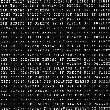|
|

Herbst in Peking Okay, here it is, the new album from our anarchist heroes Herbst in Peking. It took them two years to get it finished and released, mostly due to financial problems. That's the real underground! Herbst in Peking has been an integral part of the East German underground scene for more than ten years now, and Feuer, Wasser und Posaunen is their third album (if I counted correctly, which is not an easy task with all the obscure releases). In the beginning they basically were a punk band. Later they incorporated more and more other styles into their music. Singer and bandleader Rex Joswig is also working as a DJ, so it isn't too surprising that many tracks of the new album are stylistically closer to techno or dub than to punk or indie rock. There are strange loops, samples and sound effects everywhere, but many 'classic' rock songs as well. The 13 cuts were recorded on various locations and with different musicians. There are live recordings, studio band recordings, and totally programmed dance tracks side by side. The only connections are the voice and lyrics of Rex Joswig. So the album leaves a torn impression, but this great variety is also a big plus. The first track, La Dolce Vita, is a powerful track that reflects the mixed character of songs to follow. It starts with a powerful bass and guitar setting and adds an electronic interlude in the middle. The guitar hookline of the second track, Das Jahr Schnee, was sampled from Greg Sage of The Wipers. Tamponlovesong, the third track, is Herbst in Peking's take on a calm pop song. The very strange lyrics (German and English), however, are not really pop-like. Raskolnikov Reverse is a short experimental track with reverse (of course) Russian lyrics accompanied by sounds of a balalaika. The next song, the live recorded Kamennyi Ugol (Russian for "hard coal") is another one inspired by the Russian fixation of former East Germany. Russian propaganda records is sampled here. Neonmantra is a simple rock song while the next cut was constructed in the studio from Gibby Haynes (of the Butthole Surfers - editor's note) samples ("Jesus was an architect / Jerry Lee Lewis was the devil"), and sound effects. Haunting. The Jesus theme is continued in Jesus im Schnee, again with a Greg Sage guitar-sample. "Jesus was so cool!" Doubt the Sky is a sample-ladden, synthetic pop song, but too slow for dancing. A perfect dance track, however, is the Russian Overdub, which is a completely reworked version of Kamennyi Ugol. The following Jesus On Acid is just a spoken word version of Jesus im Schnee with some weird sound effects. With Sechs Liter Blut the band returns to the straight rock song format with powerful sound and only few technical gimmicks, just a trombone to make a difference. The album ends with Thee Dramatic Speech. The Genesis P'Orridge spelling looks like it was inspired by the industrial scene; the confusing collage of sound effects, gun shots, and vocal samples meets these expectations. Not an easy album, but definitely an interesting one. Copyright © 1998 Lonely Locke
|
| You may also want to check out our Herbst in Peking article/review: Les Fleurs du Mal. |
| © 2011 Luna Kafé |